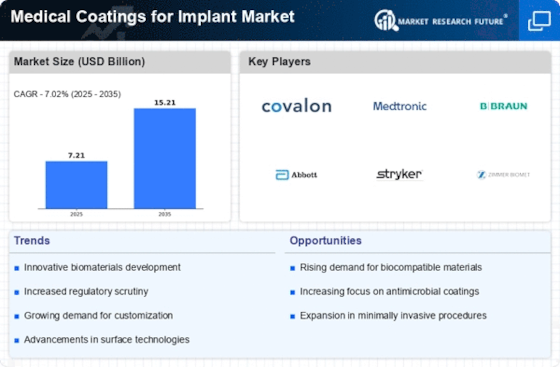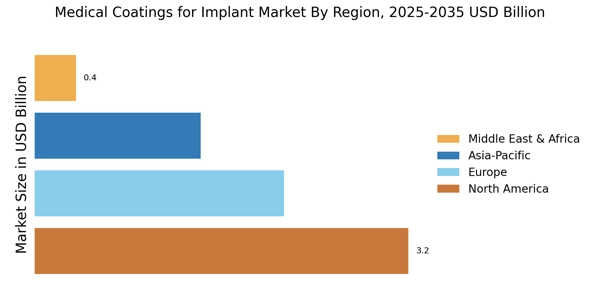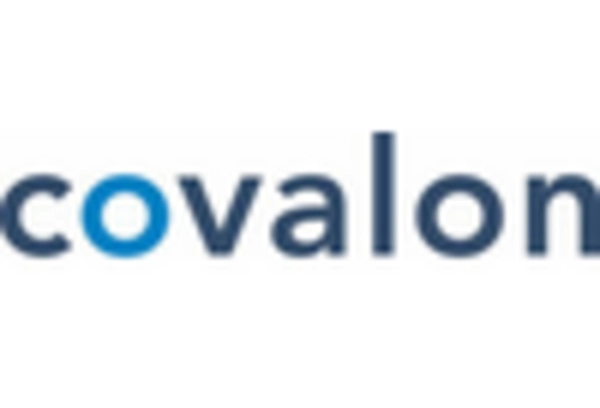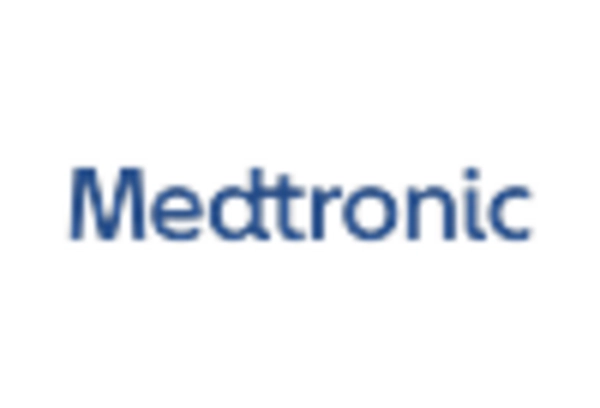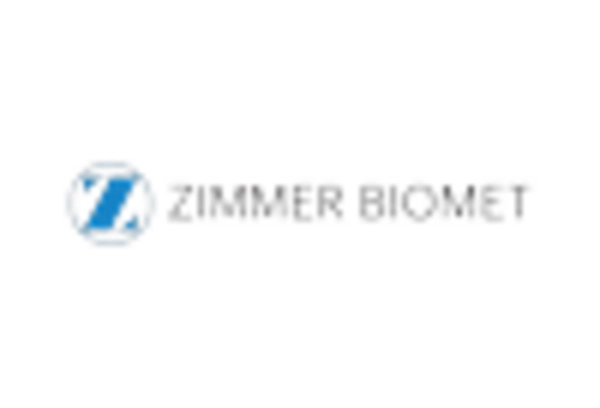Increased Focus on Infection Control
Infection control remains a critical concern in the Medical Coatings for Implant Market, particularly in surgical settings. The development of antimicrobial coatings is gaining traction as a means to mitigate the risk of post-operative infections, which can lead to severe complications and increased healthcare costs. Recent studies indicate that antimicrobial coatings can reduce infection rates by up to 50%, making them an attractive option for manufacturers. As healthcare providers prioritize patient safety and outcomes, the demand for implants with advanced infection control features is expected to rise. This trend is likely to drive innovation and investment in the Medical Coatings for Implant Market, as companies seek to develop effective solutions that address these pressing challenges.
Rising Incidence of Chronic Diseases
The prevalence of chronic diseases such as diabetes, cardiovascular disorders, and orthopedic conditions is on the rise, significantly impacting the Medical Coatings for Implant Market. As the population ages and lifestyle-related health issues become more common, the demand for implants is expected to increase. According to recent data, the number of orthopedic surgeries is projected to reach 10 million annually by 2026, necessitating advanced coatings that can enhance implant performance and patient outcomes. This growing need for effective medical solutions is likely to propel the Medical Coatings for Implant Market forward, as manufacturers strive to meet the evolving requirements of healthcare providers and patients alike.
Regulatory Support and Standardization
Regulatory bodies are increasingly supporting the development and standardization of medical coatings, which is positively influencing the Medical Coatings for Implant Market. Initiatives aimed at streamlining the approval process for new coating technologies are emerging, allowing for faster market entry of innovative products. This regulatory support is crucial, as it encourages investment in research and development, leading to the introduction of safer and more effective coatings. Furthermore, standardization efforts help ensure consistency in product quality, which is vital for maintaining patient safety. As these regulatory frameworks evolve, they are likely to foster growth and innovation within the Medical Coatings for Implant Market, ultimately benefiting manufacturers and patients alike.
Technological Advancements in Coating Materials
The Medical Coatings for Implant Market is experiencing a surge in technological advancements, particularly in the development of innovative coating materials. These advancements include the introduction of nanotechnology and bioactive coatings that enhance the performance and longevity of implants. For instance, the use of titanium dioxide and hydroxyapatite coatings has shown promising results in improving osseointegration and reducing infection rates. As a result, the market is projected to grow at a compound annual growth rate of approximately 8% over the next five years, driven by the increasing demand for high-performance implants. This trend indicates a shift towards more sophisticated and effective solutions in the Medical Coatings for Implant Market.
Growing Demand for Minimally Invasive Procedures
The shift towards minimally invasive surgical techniques is reshaping the Medical Coatings for Implant Market. As patients increasingly prefer procedures that offer reduced recovery times and lower risks of complications, the demand for implants designed for such techniques is on the rise. Coatings that facilitate easier insertion and enhance the integration of implants into surrounding tissues are becoming essential. Market analysis suggests that the minimally invasive surgery market is expected to grow significantly, with a projected value of over 50 billion dollars by 2027. This growth is likely to stimulate advancements in coating technologies, further propelling the Medical Coatings for Implant Market as manufacturers adapt to the changing landscape of surgical practices.


